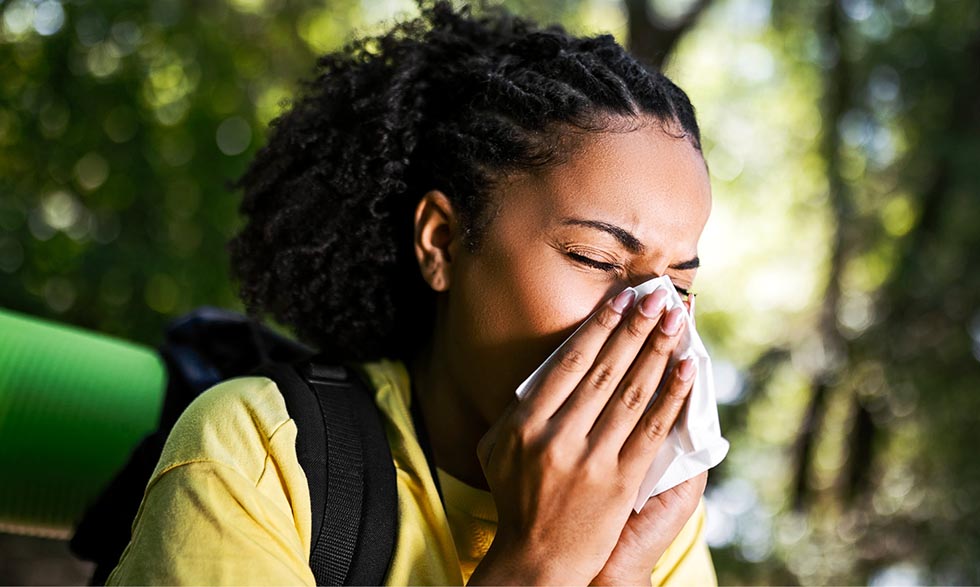When tree buds pop and grass turns bright again, many noses start to itch. More live in care than 100 million people in the United States alone feel seasonal allergy symptoms each year and that number is climbing CBS News. Here’s a clear, step-by-step guide to understand why spring allergies feel worse lately and what you can do right now to breathe easier.
Why Does Spring Hit Harder These Days?
| Driver | What’s Happening | Effect on Pollen |
|---|---|---|
| Warmer springs | Spring starts earlier and lasts longer. | Trees release pollen weeks sooner. |
| Rising CO₂ | Plants grow faster in carbon-rich air. | Each plant makes more pollen grains. |
| Weather swings | Sudden heat after rain triggers “pollen bursts.” | Spikes send counts from mild to extreme in hours. |
Researchers project a 16 – 40 % jump in annual pollen production by mid-century if warming continues Nature Science Direct. A 2025 review warns that both the amount and potency of pollen are increasing Science Direct.
Spot the Symptoms Early
-
Repeated sneezing fits
-
Runny or stuffy nose with clear mucus
-
Itchy, watery, or red eyes
-
Tickling cough, especially outdoors
-
Fatigue from poor sleep
Tip: If you also have fever or body aches, check with a doctor; colds and flu can mimic allergies.
Daily Habits That Cut Pollen Exposure
-
Check the Air-Quality or Pollen App at breakfast. Plan outdoor tasks for low-count hours (often after rain).
-
Shower and change clothes as soon as you come inside.
-
Machine-wash bedding weekly in hot water.
-
Keep car and home windows closed on high-pollen days; use recirculate mode.
-
Wear wrap-around sunglasses to shield eyes while gardening or walking.
Make Your Home a Low-Pollen Zone
| Area | Quick Fix | Why It Works |
|---|---|---|
| Bedroom | Run a portable HEPA purifier all night. | Removes up to 80 % of fine allergens. |
| Entryway | Leave shoes and jackets at the door. | Pollen grains hitch rides on fabric. |
| HVAC | Upgrade to MERV-13 filter and change each season. | Captures tiny particles that cheaper filters miss. |
| Floors | Vacuum with a sealed HEPA model twice a week. | Ordinary vacuums can blow pollen back out. |
Medication Basics Start Before Symptoms Peak
| Category | Common Examples | How They Help |
|---|---|---|
| 24-hr oral antihistamines | Loratadine, cetirizine | Quiets sneezing and runny nose; non-drowsy options available. |
| Intranasal corticosteroid sprays | Fluticasone, mometasone | Reduces swelling inside nasal passages; recent studies show sprays outperform pills for congestion AAAAI. |
| Eye drops (antihistamine + lubricant) | Ketotifen, olopatadine | Soothe itching and flush pollen. |
| Leukotriene blockers | Montelukast | Add-on for stubborn night-time symptoms (use under medical advice). |
Plan ahead: Allergists recommend starting sprays or pills 1–2 weeks before local pollen bursts for best control New York Post.
Natural Helpers (Evidence-Backed)
-
Saline nasal rinse: twice-daily flush clears pollen without medication.
-
Butterbur extract (PA-free): some trials show pill form eases sneezing; talk to your pharmacist first.
-
Local honey myth? Tasty, yes—but scientific proof that it reduces allergies is weak.
Special Steps for Children
-
Teach kids to wash hands and face after recess.
-
Slip a small bottle of saline spray in the school bag for quick relief.
-
Ask teachers to keep windows shut during peak pollen hours (often mid-morning).
-
For persistent symptoms, discuss allergy testing; immunotherapy drops or shots can reduce reactions over time.
Travel and Outdoor Plans
| Situation | Smart Move |
|---|---|
| Weekend hike | Check trail pollen forecast and pick damp, cloudy mornings. |
| Long drive | Replace car cabin filter; keep AC on recirculate. |
| Camping | Pitch tent away from flowering trees; zip flaps tight at night. |
| Flying | Pack meds in carry-on; plane air is filtered but airport exposure is high. |
When to See an Allergy Specialist
-
Over-the-counter meds no longer work.
-
You wheeze, gasp, or feel chest tightness.
-
Symptoms last more than three months a year.
-
You want to discuss immunotherapy (allergy shots or sublingual tablets).
Quick Reference Table
| Goal | Simple Action | Result You’ll Notice |
|---|---|---|
| Cut indoor pollen | Run HEPA purifier in bedroom | Fewer morning sneezes |
| Protect eyes | Wear wrap-around shades | Less redness after walks |
| Stop nasal swelling | Spray intranasal steroid daily | Easier breathing in a week |
| Plan outdoor work | Use pollen app alerts | Shorter symptom flares |
| Reduce nighttime drip | Shower before bed | Better, quieter sleep |
Final Word
Spring allergies aren’t a reason to stay locked indoors. With early prep checking the pollen forecast, sealing your home, and using the right meds you can enjoy blooming parks and sunny runs without the tissue box. Start small, stay consistent, and your lungs (and eyes and nose) will thank you all season long.









